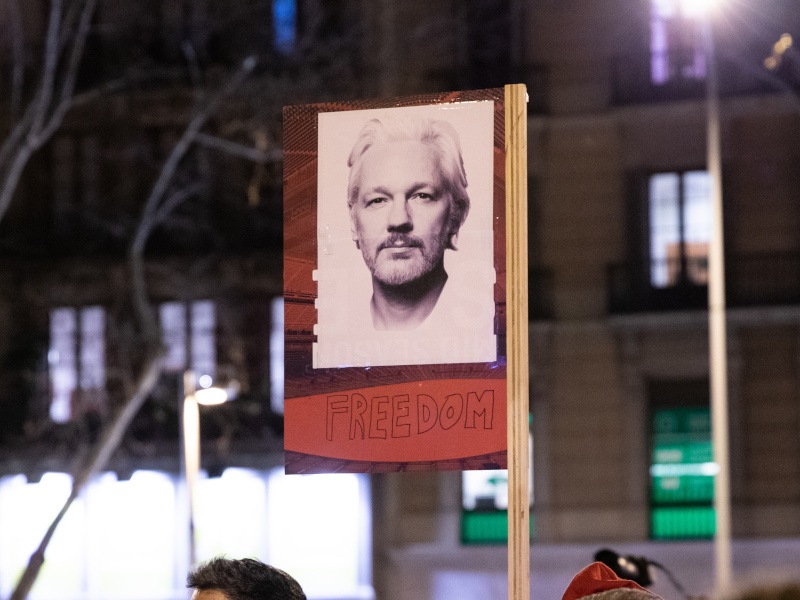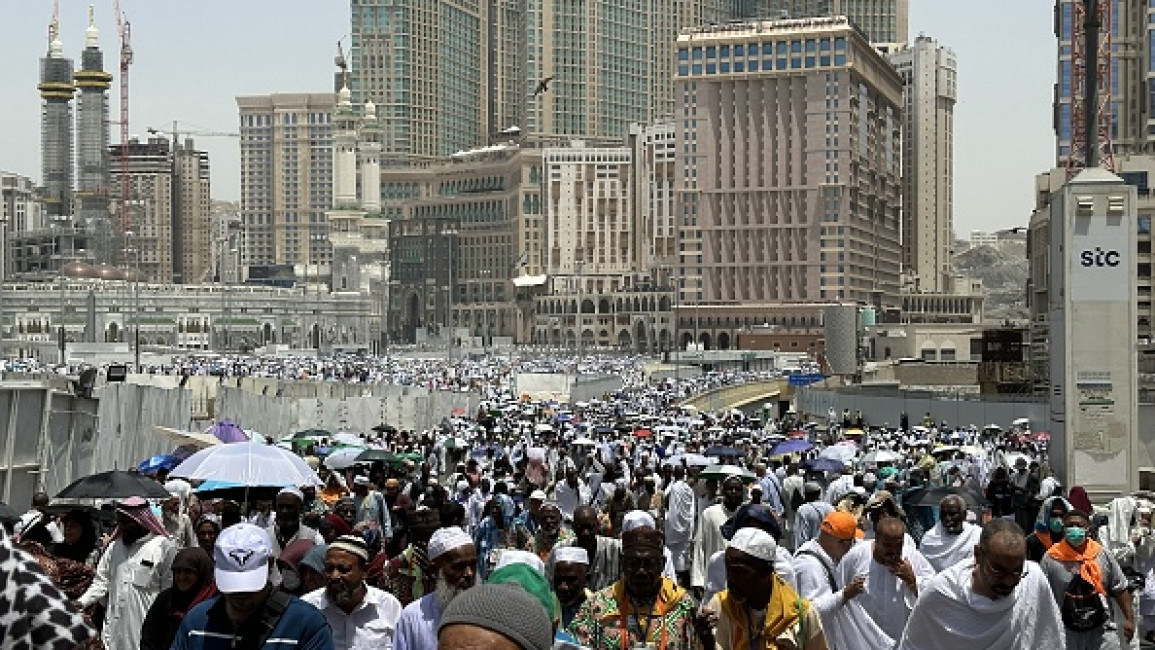An image of Julian Assange at a protest in Spain. Image: Catalan National Assembly/Flickr (CC BY-NC 2.0) Photo Courtesy
Assange is expected to plead guilty to breaching US espionage laws and will then be free to return to Australia. WikiLeaks founder Julian Assange has been released from a UK prison after pleading guilty and striking a deal with the US Department of Justice.
Assange has been in a UK prison for five years, after spending seven years in the Ecuadorian embassy in the UK and losing asylum status in 2019. Videos have been shared by WikiLeaks on social media and his wife Stella Assange of him boarding a plane to leave the UK.
It is being reported that he is heading to the US District Court for the Northern Mariana Islands. He is expected to plead guilty to one count of conspiring to obtain and disclose classified US national defence documents, according to court documents shared by The Guardian.
After he pleads guilty, the US court judge is expected to charge Assange with five years of time served. He will then be free to return to his family in Australia. Both his wife and Wikileaks thanked Assange’s supporters for helping to make this plea deal possible.
“This is the result of a global campaign that spanned grass-roots organisers, press freedom campaigners, legislators and leaders from across the political spectrum, all the way to the United Nations,” WikiLeaks said on X. “This created the space for a long period of negotiations with the US Department of Justice, leading to a deal that has not yet been formally finalised. We will provide more information as soon as possible.
“After more than five years in a 2×3 metre cell, isolated 23 hours a day, he will soon reunite with his wife Stella Assange, and their children, who have only known their father from behind bars.”
Australian prime minister shared his thoughts on Assange’s release in the country’s parliament and said “Regardless of the views that people have about Julian Assange and his activities, the case has dragged on for too long”.
Assange launched WikiLeaks in 2006 as an online location for whistleblowers to leak confidential, classified documents. The site has been used to leak various forms of confidential content, such as footage of a US helicopter attack in Iraq and classified documents on US wars.
In 2017, an incident known as the Vault 7 leak, saw 8,761 classified documents detailing CIA hacking tools make their way onto WikiLeaks. The massive leak on CIA spying tools contained some shocking claims, including suggestions that hackers could gain entry to Apple iPhones as well as Google Android devices and Samsung TVs to capture private data.
Assange has faced pressure for years since WikiLeaks rose to prominence, being investigated for alleged sex crimes in 2010. He denied these allegations and said they were a pretext to extradite him to the US over WikiLeaks.
While Assange has managed to secure a good deal, some of those who used WikiLeaks are not so lucky. Joshua A Schulte, a former CIA software engineer charged with being behind the Vault 7 leak, was sentenced to 40 years for multiple charges earlier this year. Source: by Leigh Mc Gowran, Silicon Republic








